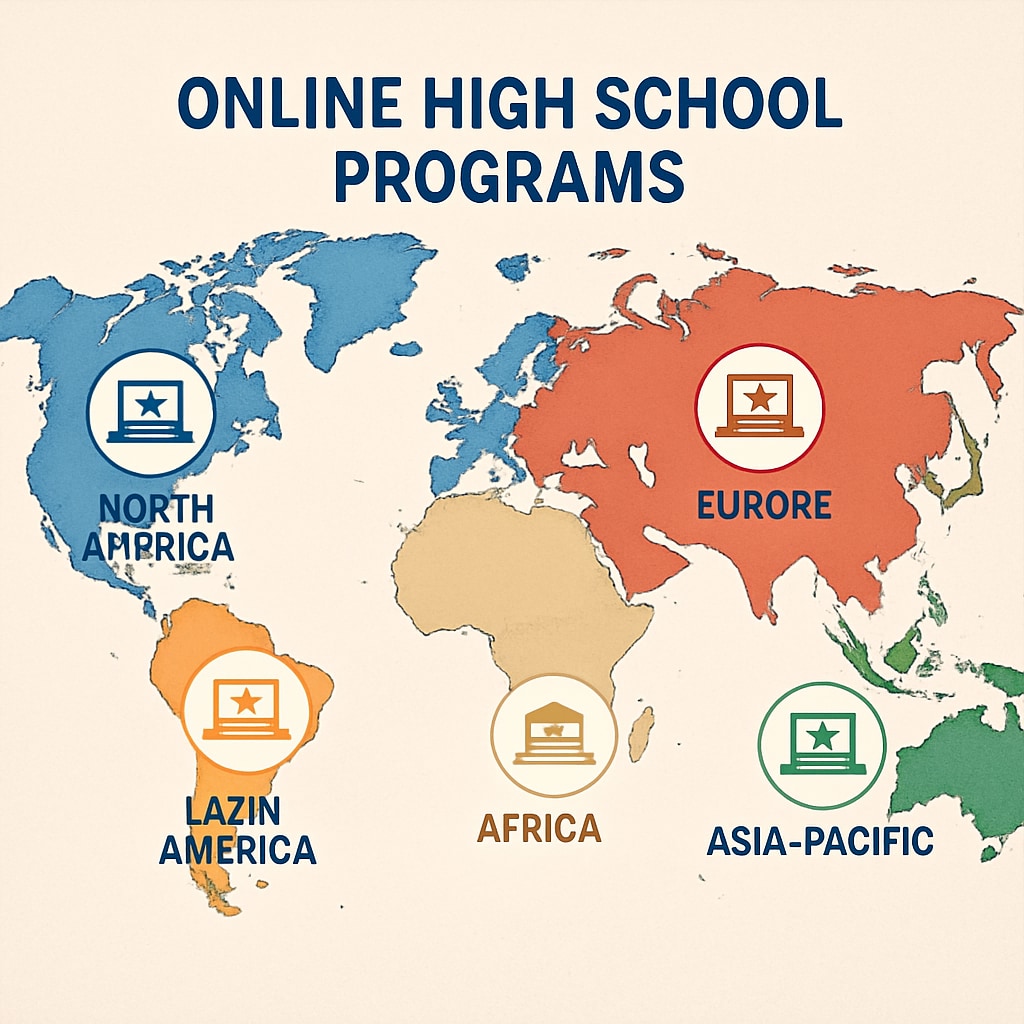For students who have experienced academic interruptions due to health issues, family emergencies, or other unique circumstances, the road to recovery can seem daunting. Fortunately, online high school programs offer a flexible, accessible, and effective solution for obtaining an online high school diploma, recovering lost school years, and navigating the complexities of academic systems built on credit-based structures. In this article, we explore how these programs help students regain their academic momentum, analyze global differences in online high school systems, and provide actionable advice for selecting the right program.
Why Choose Online High School Programs?
Online high school programs have become increasingly popular due to their flexibility and accessibility. Unlike traditional brick-and-mortar schools, these programs allow students to learn at their own pace, making them ideal for those facing academic setbacks. For example, students recovering from illness can adjust their schedules without worrying about missed classes and deadlines. Similarly, students who relocate frequently or face unique family dynamics can benefit from the portability of online education.
Key benefits of online high school programs include:
- Flexibility: Students can design their own schedules and prioritize their recovery or other responsibilities.
- Accessibility: Courses are available anywhere with an internet connection, eliminating geographic barriers.
- Personalization: Many programs offer tailored curriculum paths to meet individual needs.
Additionally, online programs often operate under a credit-based system, allowing students to focus on earning specific credits required for graduation without repeating an entire school year.

Understanding Global Differences in Online High School Systems
While the concept of online high school programs is universal, the structure, curriculum, and accreditation standards differ significantly across countries. For example:
- United States: Most online high school programs follow a credit-based system where students must earn specific credits in core subjects like math, science, and English to graduate. Accreditation by recognized bodies such as AdvancED or Cognia ensures program quality.
- United Kingdom: Online high schools often align with the GCSE and A-Level curriculum frameworks, emphasizing standardized assessments.
- Australia: Programs are tailored to meet state-specific requirements, such as the Victorian Certificate of Education (VCE) or Higher School Certificate (HSC).
Researching and understanding these differences is crucial for students seeking programs that align with their future academic or career goals. For instance, students planning to apply to universities in the U.S. may prioritize programs accredited by U.S.-based organizations to ensure their diploma is recognized.

How to Choose the Right Online High School Program
Choosing the right online high school program can be overwhelming, but breaking down the process into manageable steps can simplify decision-making. Here are some practical tips:
- Assess Your Needs: Determine whether flexibility, accreditation, or a specific curriculum framework is your top priority.
- Verify Accreditation: Ensure the program is accredited by reputable organizations to guarantee your diploma’s validity.
- Explore Support Services: Look for programs that offer academic counseling, tutoring, and mental health resources.
- Check Technology Requirements: Ensure your devices and internet connection meet the program’s technical specifications.
- Read Reviews: Research testimonials from current or former students to gauge program effectiveness.
For more information on accreditation, refer to resources such as Accreditation on Wikipedia or consult organizations like Cognia.
Overcoming Academic Setbacks
Recovering from academic setbacks involves more than simply catching up on missed coursework—it requires rebuilding confidence, creating a sustainable learning routine, and setting realistic goals. Online high school programs provide the tools needed to achieve this, but students must also take proactive steps to ensure success:
- Build a daily schedule that includes dedicated study time and breaks.
- Set short-term goals to track progress and maintain motivation.
- Communicate regularly with instructors and support staff for guidance.
As a result, students who leverage online high school programs can not only recover lost years but also build skills such as time management and self-discipline that will benefit them in higher education and beyond.
Online education is transforming the way students approach learning, offering a lifeline to those facing academic challenges. By choosing the right program and embracing its opportunities, students can regain their academic footing and create a brighter future.


